
Embroidery is a timeless art form that involves creating intricate designs using threads and needles. To achieve the best results, it is important to choose the right sewing thread for embroidery projects. The thread you select can greatly impact the final outcome of your embroidered piece. Here, we will explore the different types of sewing threads commonly used in embroidery and their characteristics.
1. Rayon Thread
Rayon thread is a popular choice for embroidery due to its high sheen and vibrant colors. It is made from regenerated cellulose fibers and has a glossy appearance, resembling silk thread. Rayon thread works well for designs that require a smooth and shiny finish. It adds a luxurious touch to any embroidery project.
2. Polyester Thread
Polyester thread is another common choice for embroidery. It is known for its durability and colorfastness, making it ideal for projects that require frequent washing or exposure to sunlight. Polyester thread has a slightly less shiny appearance compared to rayon, but it offers excellent strength and resistance to abrasion.
3. Cotton Thread
Cotton thread is a natural choice for embroidery due to its softness and versatility. It is available in various weights, from lightweight to heavy-duty, making it suitable for different types of embroidery projects. Cotton thread works best for embroidering on natural fabrics like cotton, linen, or silk.
4. Metallic Thread
Metallic thread adds a touch of glamour to any embroidery design. It is made by wrapping metallic foil around a core thread. Metallic thread is known for its reflective properties, creating a shimmering effect on the embroidered surface. However, metallic thread can be slightly more challenging to work with due to its tendency to break or fray.
5. Silk Thread
Silk thread is highly regarded for its elegance and beauty. It is made from natural silk fibers and has a fine, lustrous appearance. Silk thread is often used for delicate or intricate embroidery work, such as monogramming or embellishing high-end garments. While silk thread adds a luxurious touch, it is not as strong as other synthetic threads.
Choosing the Right Sewing Thread
When selecting a sewing thread for embroidery, consider the fabric you will be embroidering on and the desired effect you want to achieve. Some key factors to consider include:
- Type of fabric: Different threads work better on certain fabrics. For example, rayon thread complements satin or silk fabrics, while cotton thread works well on denim or linen.
- Design complexity: Thicker threads, like cotton or polyester, are better suited for bold and larger designs, while finer threads, such as silk or rayon, work well for intricate details.
- Washing requirements: If the embroidered piece will require frequent washing, choose a thread that is durable and colorfast, like polyester.
| Thread Type | Characteristics |
|---|---|
| Rayon | High sheen, vibrant colors, smooth finish, luxurious appearance |
| Polyester | Durable, colorfast, strong, resistant to abrasion |
| Cotton | Soft, versatile, available in different weights |
| Metallic | Reflective, shimmering effect, adds glamour |
| Silk | Elegant, fine appearance, suitable for delicate work |
Embroidery enthusiasts can experiment with different threads to find the perfect match for their projects. Remember to consider the fabric, design complexity, and washing requirements to ensure a successful outcome. Happy embroidering!
Sources:
– DMC.com
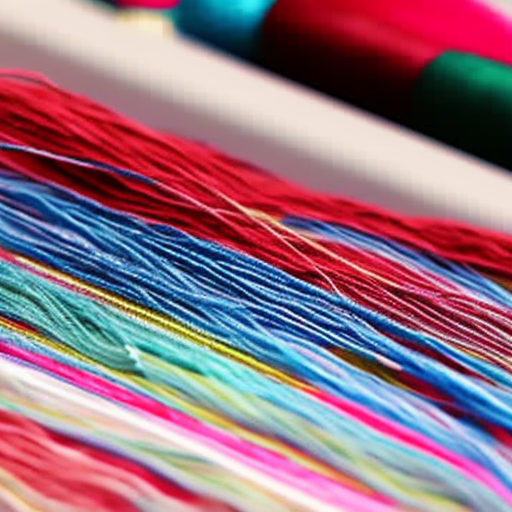
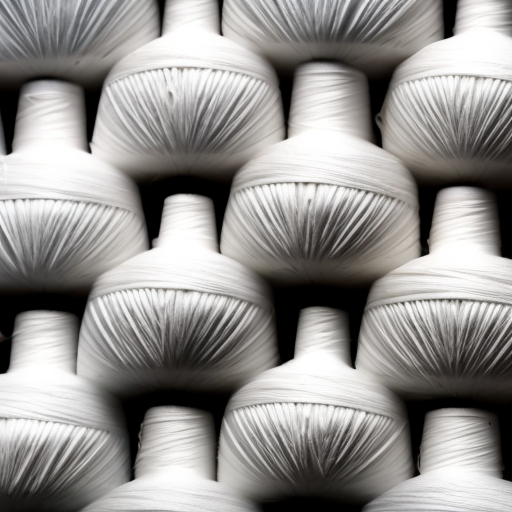
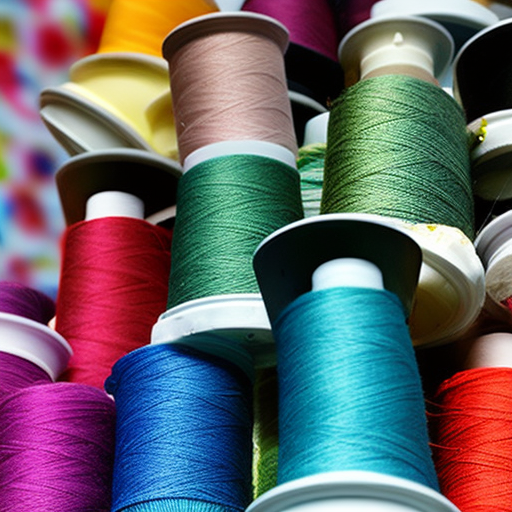
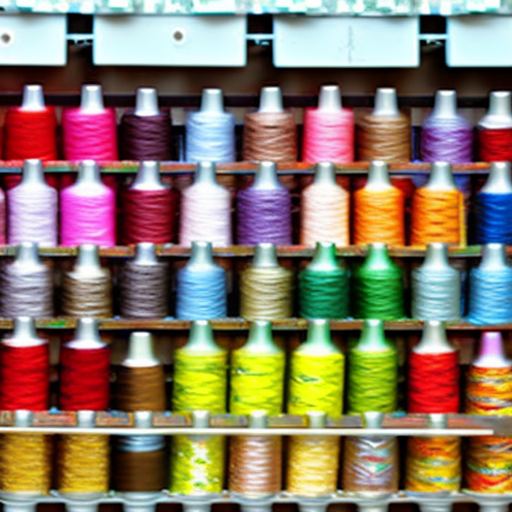
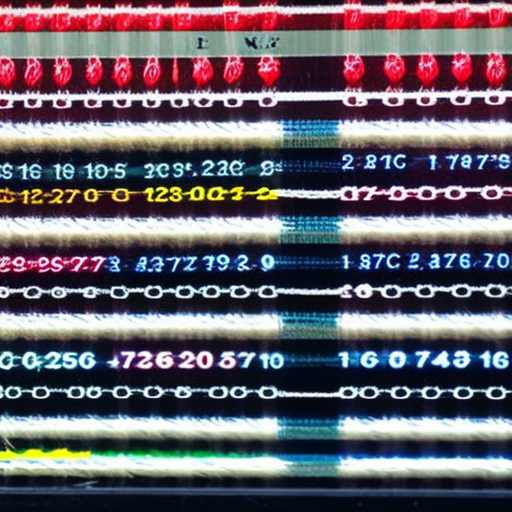
What type of thread are you looking for specifically? #threading
Mary Smith: I love embroidery, I can’t wait to see your project! #embroidery #handcrafted
Jack Connor: What color is the thread? #colors
Sam Jenkins: Excellent choice to make your project stand out! #details #crafty #quality
Crafting with attention to detail makes all the difference! #attentiontodetail #craftingmasters #nextlevel
With the right thread the possibilities are endless! #stitching #textiles #unique